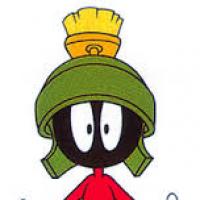訊息: 17
語言: English
Tempodivalse (顯示個人資料) 2015年6月23日上午9:33:38
Remember that roots count in Esperanto more than the actual "words", since you have to memorise the former and not the latter (in contrast to some languages).
Mustelvulpo (顯示個人資料) 2015年6月23日下午9:12:07
Urho:Maybe 1,217 words, please see at lernu!:I think that anything complicated could probably be rewritten in "simple Esperanto" using just the 1,217 words in these lists along with the affixes. It would involve some long, meandering descriptions and a little word coining, but it could be done
jdawdy (顯示個人資料) 2015年6月24日上午5:31:19
SPX:I was reading something today that said the average English speaker knows about 12,000 words, but that only about 3,000 are necessary to understand most conversations, read most newspaper articles, etc. So I was wondering what the comparable stat is for Esperanto.I think there is a lot of underestimation of how many Esperanto words you need to know to read a book or newspaper article.
Does anyone know if any studies have been done on this? How many words are necessary to be considered a functional Esperanto vocabulary?
For example, I have learned 1600+ words on Memrise. When you add in other words I've learned from other sources, and also cognomens, I probably know 2500-3000 words, as far as reading is concerned (I'm always less sure when speaking or writing if a word is correct).
With that, I can read articles and books...but with many, many words that are unfamiliar to me. So, while I can always get the general gist of the article, and understand most sentences, there are usually about 10% of the words I am either unsure of, or simply do not recognize at all. So, if I want perfect understanding of a book or article, I am going to be frequently referring to a dictionary.
So, my guess is that to effortlessly read most news articles and books with only rare reference to a dictionary (say, once every 5-10 pages), you would need to learn at least 5000 words.
Consider this paragraph from CRI:
Abbas ne malkaŝis la kaŭzon de tiu decido. Li diris, ke la Palestina Islama Rezist-Movado, kiu regas Gazaon, ankoraŭ ne permesas al la konalicia registaro plenumi siajn povojn en Gazao. Analizantoj konjektis, ke ĝuste pro tio Abbas decidis ekzigi la koalician registaron.I do not recognize "konjektis" (but guess it may be "conjecture" due to the context) and "eksigi" without looking them up in a dictionary (also note that the CRI text "konalicia" and "ekzigi" are typos). "Plenumi" and "povoj" I am not 100% sure of so I also look them up to make sure I have the exact meaning-I know they refer to fullness and can/ability but I'm just not sure of the exact translation. The affix system can get you pretty far in Esperanto, but there are shades of meaning that can be a little tricky.
Bemused (顯示個人資料) 2015年6月25日下午1:33:53
SPX:I was reading something today that said the average English speaker knows about 12,000 words, but that only about 3,000 are necessary to understand most conversations, read most newspaper articles, etc. So I was wondering what the comparable stat is for Esperanto."GOOD NEWS - If your goal is to speak English fluently, you are not required to study 10,000 words. 2,000 is enough to get you started." Source
Does anyone know if any studies have been done on this? How many words are necessary to be considered a functional Esperanto vocabulary?
Hopefully the number needed for Esperanto would be less than this.
WereVrock (顯示個人資料) 2015年7月5日上午9:34:51
bryku:I'm curious. What is an "amilo"?
ami - ama - amo - amigi - amilo - amanto...
sudanglo (顯示個人資料) 2015年7月5日上午9:56:37
WereVrock:Depending on context, it might be a love potion or a sex toy, though the latter might be better translated as amorilo, and the former by enamigilo.bryku:I'm curious. What is an "amilo"?
ami - ama - amo - amigi - amilo - amanto...
Venis nur unu kliento, kiu petis kuracilon kontraŭ tusado, kaj mi vendis al li botelon da tiu medikamento
Note that the il suffix does not necessarily mean a physical instrument. It can be more abstractly a means for accomplishing a purpose
Miland (顯示個人資料) 2015年7月5日上午10:41:54



